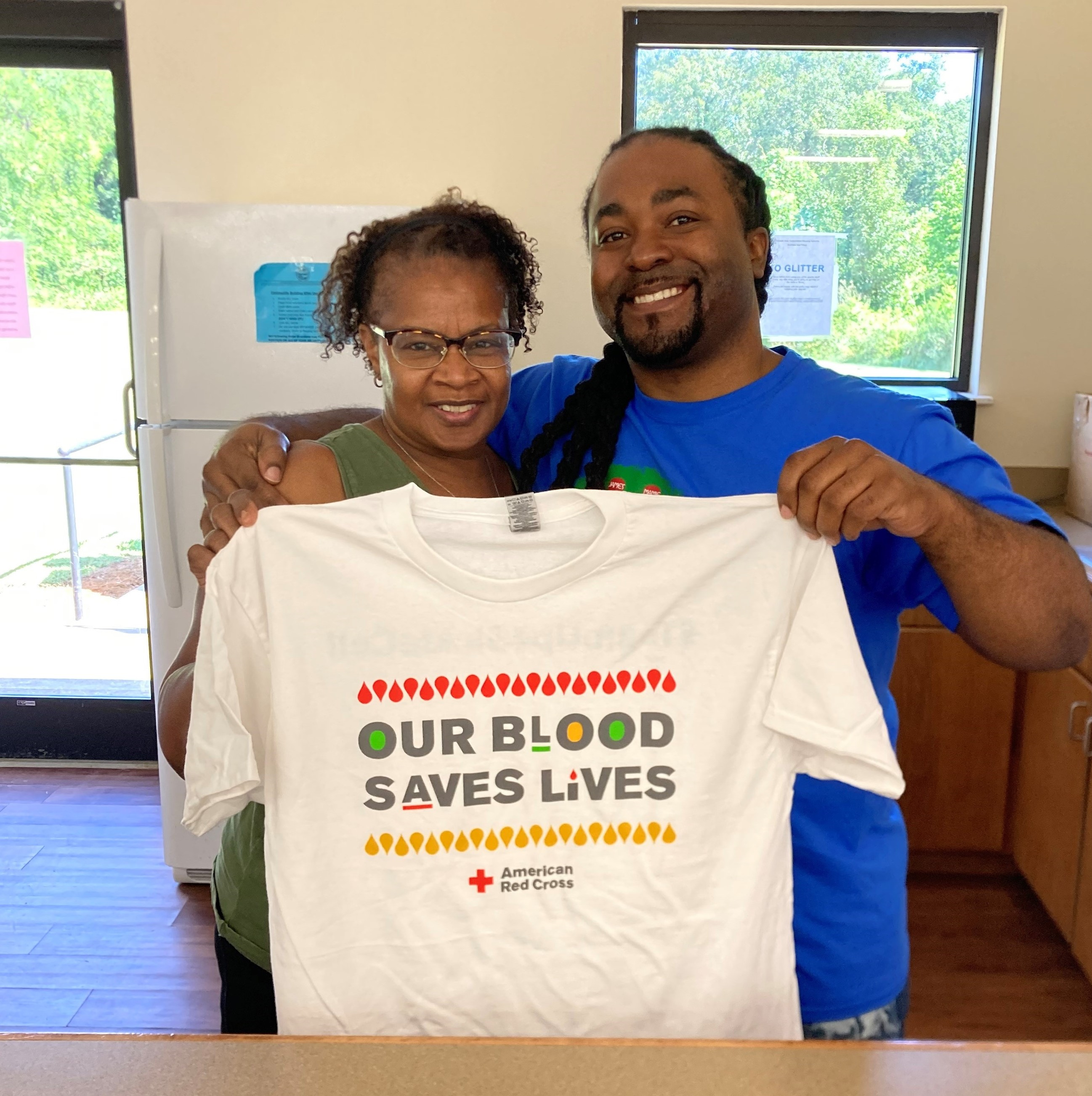The first time Clara Atkins, of Bartow County, donated blood to the American Red Cross was in the 80s after her daughter, Amanda, was diagnosed with sickle cell anemia (commonly known as sickle cell disease.) At that time, Amanda, now in her mid-30s, was 18 months old. The news of her diagnosis was a blow to the family. Though neither Clara nor her husband has the illness, both have the sickle cell trait. They also have a son who has no such condition.
After receiving this news, Clara, 59, decided to donate blood and thus began a journey of giving which continues to this day.
“I was always willing to help,” Clara said in a recent interview. Because Amanda depends on blood donations from others, Clara’s resolve to give back became stronger. “Giving back helps my daughter.”
Amanda is a sickle cell warrior. She has a son – with no trait of the condition – and lives near Emory Hospital in midtown Atlanta. “That’s where the main sickle cell doctor from Emory lives,” Clara says. Amanda must be near the hospital so that when she gets the call for a blood transfusion, she can reach the hospital without delay.
Sickle cell disease distorts the shape of red blood cells that carry oxygen to all parts of a human body, thanks to their round shape. With sickle cell anemia, the blood cells are sickle-shaped (hence the name). These cells become hard over time and do not flow easily, which blocks the blood flow. The results of having sickle cell could be severe, including stroke and organ failure.
People with sickle cell need blood transfusions at regular intervals. The challenge is not just to find blood when it is needed, but also to find a matching donor. This is a constant, life-long struggle for many living with the condition. In the United States, more than 100,000 people are estimated to be living with sickle cell disease. Most of them are of African descent.
The Red Cross has launched an initiative “that aims to increase blood availability for patients with sickle cell disease.” According to an estimate, “more than half of blood donors who are Black have blood that is free of C, E and K antigens – making them the best match for those with sickle cell disease.”
This year alone, Clara has donated blood four times. Her last time was on June 18 in Cartersville. Last year, despite COVID-19 restrictions and disruptions, Clara donated blood to the Red Cross, twice. According to the Centers for Disease Control and Prevention, CDC, people with sickle cell trait can still donate blood.
“Giving is a blessing,” Clara says. This inspiring woman works at a tire manufacturing company in White, GA. In addition to caring for her sickle cell warrior daughter, she takes care of her 79- year-old mother who lives with her. Service runs deep for this Georgia native who also served four years in the military.
Right now, Clara is worried about Amanda and hopes there are enough blood donors for everyone in need. “I hope someone is always there to give blood to my child, anyone’s child,” the Georgia resident says. “You never know who will need it.”
She also has a message for others.
“Always, always be willing to give,” the mother of two makes the appeal to donate blood.
The Red Cross asks members of the Black community to join in helping to address this health disparity and meet the needs of patients with sickle cell disease. Donors can take action today by scheduling a blood donation appointment at RedCrossBlood.org, by downloading the Blood Donor App, or by calling 1-800-RED CROSS. Please help to tackle the need for blood in September – Sickle Cell Awareness Month.
Clara Atkins, Bartow County Blood Donor (left) and Trey Benham, NWGA Red Cross Board Chairman (right)
Press Release
About the American Red Cross:
The American Red Cross shelters, feeds and provides emotional support to victims of disasters; supplies about 40 percent of the nation’s blood; teaches skills that save lives; provides international humanitarian aid; and supports military members and their families. The Red Cross is a not-for-profit organization that depends on volunteers and the generosity of the American public to perform its mission. For more information, please visit redcross.org or cruzrojaamericana.org, or visit us on Twitter at @RedCross

